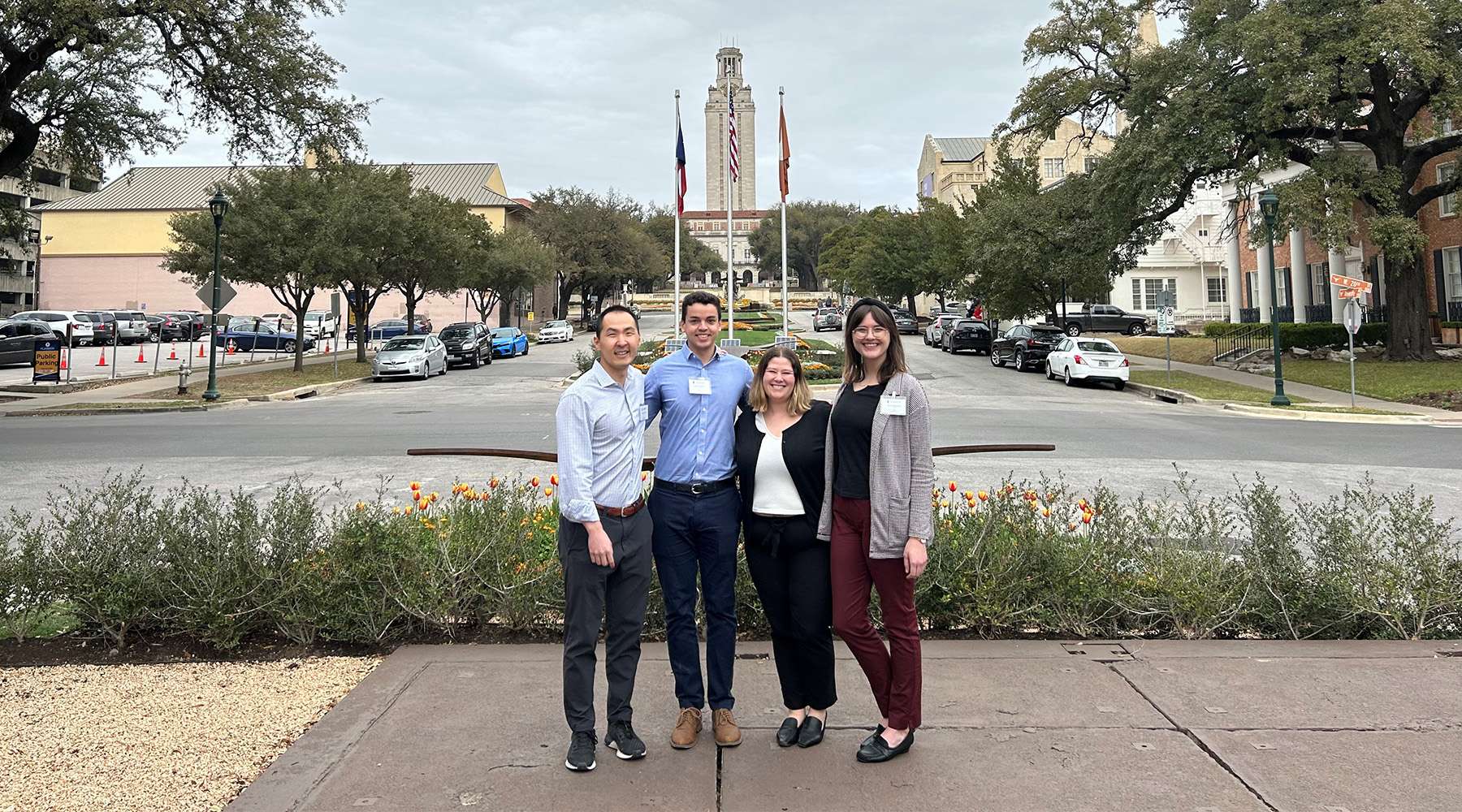
On February 24, a delegation of Tuckies made their way to Austin, Texas for the 2023 ClimateCap Summit. Coordinated by Duke University’s Fuqua School of Business, ClimateCAP: The Global MBA Summit on Climate, Capital, & Business is an annual event that brings MBA students and industry leaders together to learn what every MBA needs to know about the business implications of climate change. This year, Tuck sent four students from across both the T’23 and T’24 classes to attend the conference. The conference itself was hosted by the McCombs School of Business at The University of Texas at Austin, and the organizers brought a commitment to zero-waste initiatives like carbon offsets for attendees and composting as much as possible, Austin flair including plenty of Tex-Mex dishes, and a focus on Energy and Sustainability (as Texas leads the nation in energy production) for their attendees to enjoy.
The conference kicked off with some Keynote speakers like Paul Polman (former Unilever CEO) and Ron Gonen (Closed Loop Partners), who emphasized that myopic business practices that lead to climate change cannot continue since “businesses cannot succeed in societies that fail” and reminded attendees that we need to create more circular economies to both decrease costs and save the world. The conference continued with additional speakers on topics such as steps hard-to-decarbonize industries are taking to reduce their environmental impact, disruptive technology coming out of climate-focused companies, and multiple breakout sessions over relevant climate topics.
Sarah Kilpatrick T’24: “The conference reminded me that as business students, we are often taught business models that are designed to create waste for profit. Now that we as a society know that these practices are harming our planet, we need to push back on traditional models and work to create new ones that emphasize making less without losing profitability. Furthermore, we cannot continue to accept that sustainability is optional for organizations because putting sustainability at the core will lead to better leaders, better innovation, and better outcomes for businesses and humanity.”
Osmond Wang T’23: “It was awesome to hear from business leaders across industries, and it was really encouraging see that companies are taking climate seriously, with everyone already starting to take real actions to reduce future carbon emissions across scope 1, 2, and 3. ClimateCAP was a great way to condense perhaps one class’s worth of knowledge into 2 days. I learned about both broad decarbonization frameworks as well as many thought-provoking tidbits. For example, Emmanuel Lagarrigue from KKR shared his thoughts on 4 major components to decarbonization: large scale wind and solar, de-centralized solar, vehicle to grid, and nuclear in spots of high density energy demand. Hans Kobler from Energy Impact Partners noted, ‘oil can be in inventory about 70 days; electrons about 7 minutes,’ summarizing a key difference between renewable electricity and fossil fuel in a really neat way. The speakers were great at pinpointing the challenges ahead, but also leaving participants feeling optimistic that we can find ways to meet those challenges in the future. To quote Mr. Lagarrigue, ‘Electricity was hard to de-carbonize 15 years ago, but much more viable today.’ Hopefully, with effort from all stakeholders, the same can be said across all industries when we look back in 2040.”
Daniel Marcus T’23: “ClimateCap was truly an amazing experience that allowed me to better understand how companies are transforming their entire businesses to align with sustainability objectives. I was really interested in getting further insights into how large companies are creating more circularity within their business practices. As scope 3 emissions reporting begins to put pressure on companies to not just decarbonize their own direct business operations but also that of their suppliers, the need for circular practices becomes far greater. The farther upstream many large companies go in
their supply chain the harder it can be for them to accurately track and reduce carbon emissions, as suppliers get smaller and greater in number. In order to be in compliance with future ESG regulations and investor pressures, companies will have to create supply chains that are truly circular. Many of the companies that spoke with us during the ClimateCap conference, such as Walmart, Amazon, and Unilever, were focused on ensuring that they are making the necessary investments to help create circularity throughout their supply chains. It was amazing to see and learn about how these large organizations are trying to get out in front of climate change issues by radically changing their businesses to become more sustainable. Overall, I had an amazing time at the ClimateCap conference and strongly recommend attending to all future Tuck students interested in addressing climate change strategically through business.”
Lauren Adamson T’24: “It was interesting to hear from leaders across multiple industries—from investing to aviation to power generation and beyond – discussing the key trends in their industries and engage with students. A topic that was brought up across the board was the impact of the Inflation Reduction Act. Companies and investors have had sufficient time to understand the impact of the new policy on their business, with Nextera expecting 4-fold growth in the coming 20 years, renewable energy investors seeing profitability for projects that were previously non-starters, and start-up owners like re:3D needing to scale rapidly to keep up with new demand.”
This experience was funded by the Revers Center for Energy, Sustainability and Innovation and the Center for Business, Government & Society.